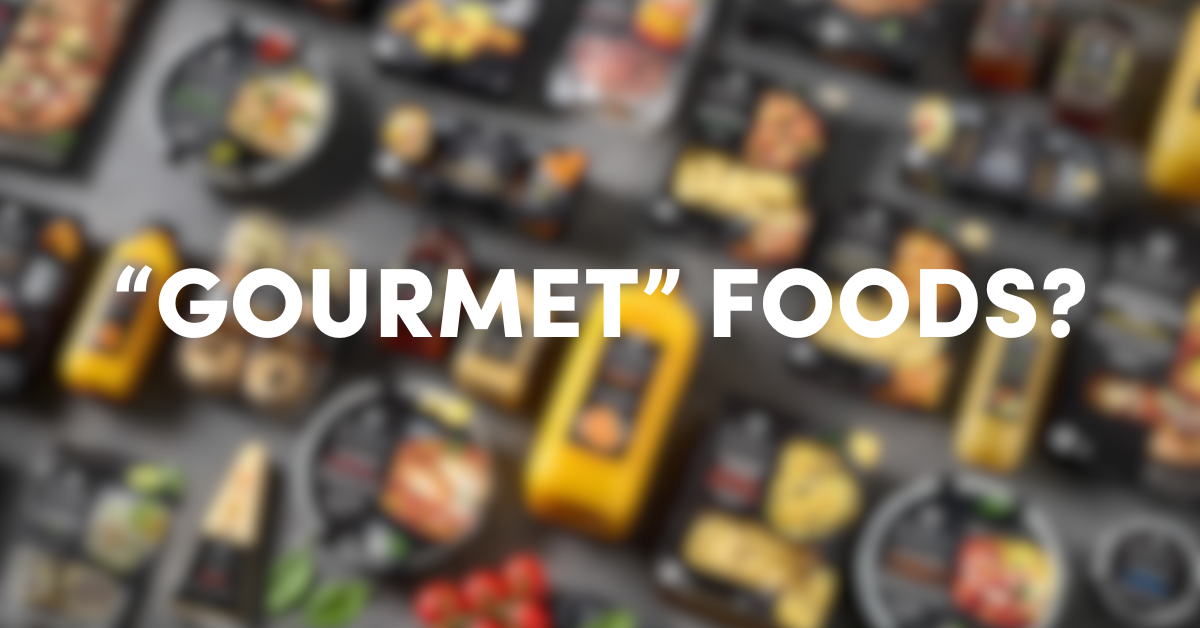



I’ve been in the food and nutrition arena for 40 years – I’ve always been ahead of the rest.
In the 80’s I was talking about the importance of fat and salt, eating real butter rather than margarine, how unprocessed dairy is healthier than low fat, the need for proper food preparation, how breakfast cereals should not be in your pantry and to read your ingredients rather than the nutritional label – to name a few. Yes I was heretical at the time, but now it’s trendy.
While I was ahead of the curve, I’m not sure if my predictions for 2022 will come this year, but I know they are coming. So rather than waiting to be told what’s ‘trendy’, become the trend setter in order to change not only your own health, but that of your community, country and planet.
Here’s what I would love to see happen in 2022, and bear in mind these future predictions are not just about you but rather the effect on planet earth. Consuming food is not solely about you; it’s about how it affects you and your mental health as well as how you show up each day for your family and friends and ultimately, you becoming part of the solution rather than contributing to the problem that we see around the world.
My hopeful 2022 food trend predictions:
1. The Growth of The Urban Garden
Food has always been purchased by weight rather than nutritional value. Much of the food in the grocery store has been grown in soil that is lacking in nutrients, sprayed with chemicals and stored for long periods, reducing the nutritional quality of the food. The reality is, you are buying bulk with not much nutrition. Add to this the new rules that allow foods to be irradiated for longer shelf life, the quality of food is becoming more and more unpredictable. There are two ways to change this narrative, firstly by growing your own food and secondly, by finding a good farmer and farmers market (more on this in trend 2).
Growing your own food is rewarding, you can start small in pots with all your herbs and then slowly move into your garden space planting lettuce, rocket, tomatoes and even potatoes. Last year I began growing my own garlic and ginger and it’s not as difficult as you would believe it to be.
2. Farmers Markets and Real Farmers
When I first started going to farmers markets a good 30 years ago, most of the stall holders would go to the big city markets, purchase what they could sell and then set up a market stall with other people’s produce. They had no idea who the growers were, what the farmers principles were, they were just resellers.
Now I’m seeing a wonderful trend of speciality farmers crowding out the resellers and creating the real farmers markets. Get to know your farmer, find out how he/she farms, are they regenerative or organic, or grass fed, or biodynamic, all of these have merit and it’s wonderful to know how your food is being grown; that it’s local, fresh and you are buying direct from the farmer without any middle person. I know at my local farmers market this is the trend, I know each one of the farmers, their farming system and all I need to know in order to get what I don’t grow myself.
3. Less Packaging, Less Rubbish
Growing your own food and buying at farmers markets already puts you in the category of using less packaging and therefore creating less waste. This year I hope to see a trend in people really considering what their food is packaged in where reasonably possible.
I know it’s convenient to buy a bag of apples rather than picking out individual apples and putting them in a reusable bag, but it’s about thinking whether you want to be part of a solution or the problem. Take the time to choose the best fresh foods and place them in your own bags. Be mindful to always have a bag with you to buy food and other commodities. In my car I always have a plethora of bags just in case.
4. The Hunt for Ethical Foods
The purchases you make for your family when it comes to food can be powerful in the fight against animal cruelty and devastation of the planet. Agricultural practices along with the many 100’s of chemicals sprayed, are killing the ecology of the soil, decreasing organic matter, releasing carbon into the atmosphere, creating desertification of landscapes, less water retention, with billions of tons of soil being washed down rivers and into oceans and increasing chances of flooding downstream.
When you purchase food that has been farmed using sustainable and regenerative practices then you are helping in the fight against ‘climate change’. Once again farmers markets are a great place to look, but if you don’t have a farmer’s market near you, then look in the grocery store or your local food store for key words, like organic, working toward organic (I saw that in a Woolworths store this year), grass fed, sustainably caught, free range, pasture fed, fare trade or chemical free to name a few. These will give you a clue that the food that you are purchasing has had some thought put into its growing process including less animal cruelty and less chemicals in the food system.
Changing Habits has always been about finding the best food that we can, hunting sometimes for years to find the best grower and or maker that has done right by the people who work for them, for the soil and for human health. Check out our smorgasbord of ethical foods here Shop | Changing Habits. Foods you can rely on because we’ve done the research. Every food we sell has a story behind it that helps us be part of an international solution to health and wellbeing.
5. Increase Use of Beneficial Condiments; Salt, Spices and Herbs
Turmeric, cinnamon, garlic, ginger, thyme, oregano, sage, rosemary, pepper, salt, chilli all have a place in the kitchen, and all have beneficial effects on organs and systems in the body. Turmeric is anti-inflammatory, cinnamon helps with sugar utilisation, garlic and ginger are immune boosters, oregano is antiparasitic, salt is filled with minerals and the list is endless. Being in the kitchen to feed and nourish your family is a growing trend which in turn heals this nation. It is important to make tasty meals and using beneficial condiments not only makes it delicious, but also adds health healing benefits.
Many condiments that do not say they are organic can be irradiated for long shelf life and as a customs regulation in Australia, so it’s important to buy the best and to buy organic. As a result of me wanting the best spices we went on the hunt a couple of years ago to find a wonderful, reputable source for our spices. You can check out our Changing Habits spice range here Herbs & Spices | Changing Habits. Our seaweed salt (our very first food product) has over 80 minerals within each morsel with a sprinkling of dulse seaweed to increase iodine, iron and DHA levels. Using these spices, the herbs you grow and seaweed salt daily, you increase your taste pleasure, functional benefit and nutrient content.
6. Real Food Supplements over Synthetic
The supplement market needs to change, that is one trend I would love to see come into effect this year. Many supplements are isolated vitamins made with genetically modified microbes and/or minerals mined from the ground. The latest and new beauty supplement is marketed as the best because it shows a gap in a biochemical reaction (that can be many steps needing a multitude of minerals) and that particular isolated nutrient is meant to be the magic bullet.
Don’t get me wrong there are some wonderful man-made supplements that are doing some wonderful things, but for the everyday supplement I believe the trend should be to make sure it comes from real food. The vitamins are within the product because the food was grown under the best conditions, picked, freeze-dried or dehydrated, made into a powder and placed in capsules or mixed and put into a container for smoothies.
In the whole history of humans there has never been an instant where we consume isolated nutrients, they are always in food, mixed with not only macro nutrients (fat, protein, carbohydrates) but other micro nutrients (vitamins and minerals). This goes for protein supplements, vitamins, minerals and probiotics. All should be based on food.
More importantly the trend to flavour, colour, acidity regulate and ‘bulk up’ a supplement is a bad trend. You are trying to do something good for yourself, but then within the goodness is additives that are dubious. I see this all the time. And many people will choose this type of supplement over real sources without the added flavour because it tastes better.
Changing Habits has supplements that are only based on food without any dubious additives, our minerals are based on plants not rocks. My morning routine is my Organic Nature’s Mineral Boost and my Peak Performance Nutritional Support | Changing Habits. I squeeze an orange, add my food supplements and chug it down. No pills, no tablets just real food.
Other wonderful whole real food supplements created by nutritionists include; Wild Collagen Reds – That Healthy Co (Tarnea O’Meara) and The Mothers Blend by Foraged for You (Sheridan Austin). So proud to see a new breed of nutritionists creating real food supplements.
7. Awareness of ultra-processed foods, including fake meats and their devastation on the environment.
When I go into a grocery store all I see are ultra-processed foods and fake meats as the main stay. One of the mainstream ideas at the moment is that if we eat plant-based meats or vegan and vegetarian options, then we will save the planet. I disagree. And if you would like to hear why I disagree, I implore you to go to this video where I present my ideas.
Ultra-processed foods, including fake meats and dairy, are usually laced with many chemicals and additives. The profit for the food companies that make these foods comes from their mastery at trickery – they lead you to believe that when you take a bite of their ‘food’ it smells like food, taste like food and looks like food and therefore must be food, but it isn’t. Instead, it is a slurry of cleverly designed chemicals that trick you into believing that it is food.
The way to know if a food is ultra-processed is to simply read the ingredients. In ‘foods’ made up of chemicals you will notice ingredients listed such as; acidity regulator, flavour (even if it says ‘natural’), colour, gums, starches and chemical names that are unpronounceable. The ingredient list will usually be lengthy with sometimes up to 50 ingredients adorning the packaging. These chemicals are made by different factories all over the world that have to be flown to the one place that makes the ultra-processed food. All these ingredients are known as (GRAS) meaning: generally regarded as safe. However, many have not been tested in combination or as a constant; and the result of the increase consumption of these ultra-processed foods has been the demise of human health.
I’d like to see the trend away from these ultra-processed, convenient, so-called ‘healthy’ foods, not only will it help your health, but it means less packaging and better for the planet.
8. Weight Loss and immune health will become the focus and a trend to pursue
The past two years has highlighted two things; firstly, the average weight gain has skyrocketed due to lock down and depression; and secondly, that a robust immune system is important.
In fact, the two go hand in hand. Obesity is a strong comorbidity for getting COVID due to three main factors (I discuss this in my new changing habits blog on Globesity and The Global Pandemic). To reduce weight at this time would be a wonderful trend to see. Obesity rates are at an all-time high, which reduces health and immunity. Our The Fat Loss Protocol – Healthy Approach to Weight Loss (changinghabits.com.au) and The Healthy Keto Way | Changing Habits are two robust weight loss and health-giving programs that we offer at Changing Habits. Not only do they help you lose weight but they equip you with the education and tools to keep it off. It’s up to you to follow the principles and find a permanent way to health, weight stability and energy.
Immune health is a must and we should all be moving towards giving our body the important ingredients the immune system needs to be robust and able to fight off infections and disease.
Most of the ingredients are free and they include; movement, sunshine, quality sleep, good food (may have to pay for this one), connection with people, grounding (bare feet on the earth), clean water, nature time, fresh air and some cold exposure. These are all factors that will contribute to essential nutrients and exposure the body needs for a healthy body and robust immune system. These are also the ingredients the government has failed to tell you about.
If we all work together and work with these trends, we will start a ripple effect amongst our family and friends that hopefully will begin that tsunami of change for humans and planet earth.
Cyndi O’Meara
Nutritionist
Researcher
Best Selling Author
Founder of Changing Habits, Changing Habits Farm and The Nutrition Academy
Producer of the Documentary What’s With Wheat




The influence of billion dollar lobbyist industries and government-led food guidelines are increasing the presence of chronic disease and eroding connection to culture in more than just the Western nations. This is an issue that needs to be discussed more often.

Are you considering enrolling in one of our courses but don`t know which? Take our quiz to understand which course suits you best!
↳ follow the link in our bio

What does happiness look like for you in your life?

Glycerol is another of those tricky words that you may read on an ingredient`s list but not know what it actually means. Glycerol is the name of a carbon that interacts within your body. Industrial glycerol is often created through chemical processing, which can involve petroleum-derived steps or harsh refining.
Learn more about glycerol and other chemical additives in Cyndi`s blog Flavours in Food and Vaping.

Whatever reason you have for studying with The Nutrition Academy, you will benefit from not only the direct knowledge learned but the skills you develop which can be applied in different situations, however you move forward once graduating.

Unsure if our courses are right for you? Have a taste of what it`s like to study with The Nutrition Academy with our free modules! Follow the link in our bio.

We`ve been back to the Changing Habits farm since filming these videos and the chop and drop has been chopped and dropped. Cyndi`s family (and us here in the office) are enjoying the fruits of her labour, literally!

Learn the truth about industry lobbying, twisted food pyramids and what money can take away or add to the health industry with our Functional Nutrition Essentials course.
↳ follow the link in our bio

Respect your life, your body and your relationship with health through every choice you make. How do you honour your relationship with health?

Postbiotics are not like prebiotics or probiotics. They`re a naturally developed bacteria in your gut that help support your gut health, immunity and reduce inflammation. Your body creates postbiotics when it is filled with enough of the positive probiotics in your gut. Did you know about postbiotics?

For something different, try The Nutrition Academy`s Functional Nutrition Essentials course. Learn more than what they teach you at school, at university or via media marketing. Learn the truth which has sustained humans for generations.
↳ follow the link in our bio

Become more than a statistic with The Nutrition Academy.
↳ follow the link in our bio
